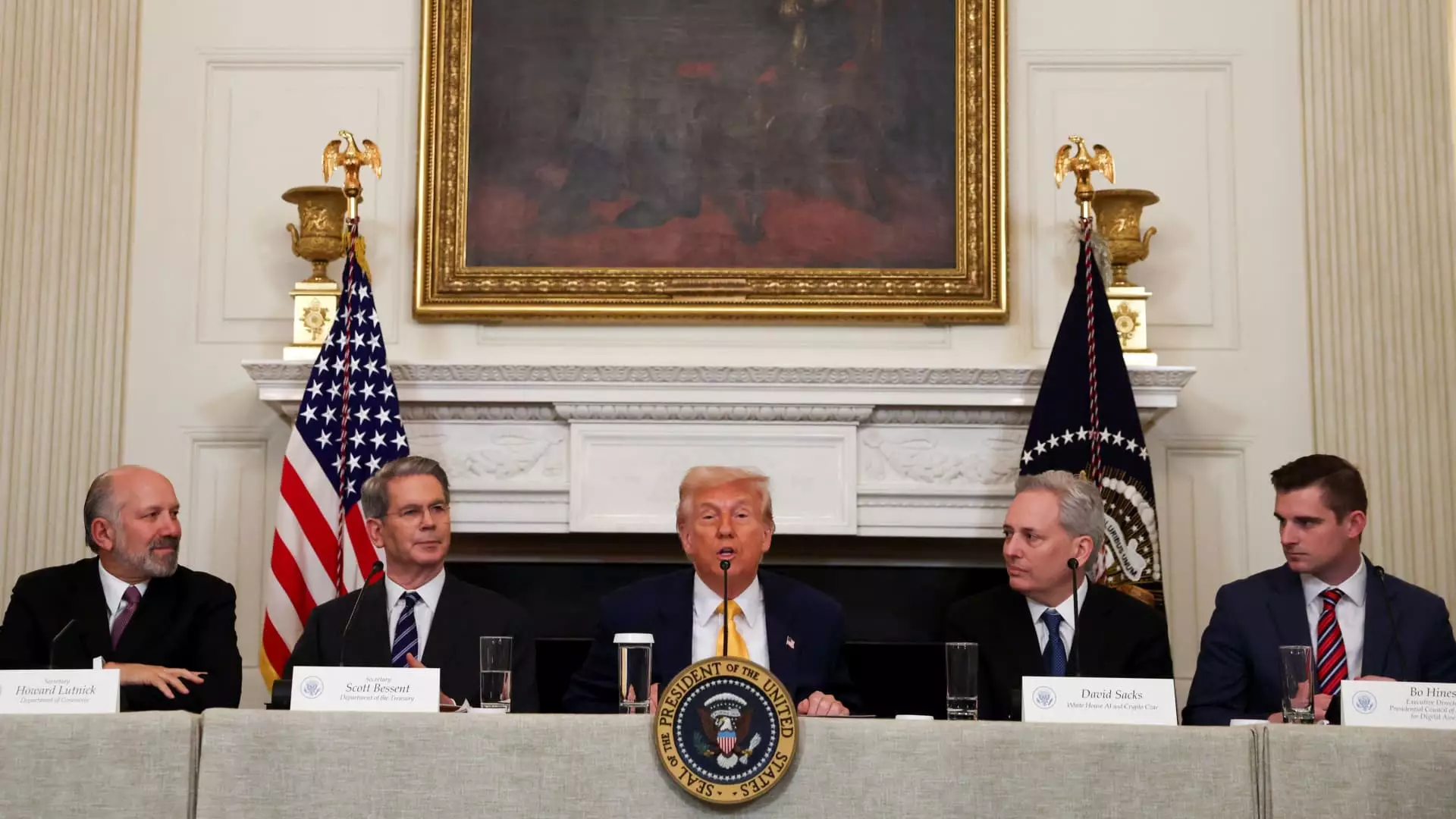In an age where technology is evolving at lightning speed, one wonders if it’s wise to have a 29-year-old with minimal experience steering the United States’ digital currency ambitions. Bo Hines, a former football player with about three years of legal training, embodies the audacity of youth paired with an alarming lack of industry knowledge. His ascent to a key role in President Trump’s crypto agenda raises questions about the qualifications required to navigate this complex landscape. While it’s commendable that he has made it this far in the political arena, the fact that he has never held a professional role in the cryptocurrency sector is a glaring red flag, especially given the volatility and risks associated with digital assets.
Promising a Golden Age Without Substance
Hines repeatedly asserts that he is on a mission to usher in a “golden age” for digital assets, but this language often feels more like political rhetoric than actionable strategy. He proudly states that he and his team are dedicated to making the United States the “crypto capital of the planet.” However, ambitious proclamations without concrete plans will not yield genuine progress. What does this so-called “golden age” entail? Speculative investments, or a systematic approach to regulating digital currencies? The answer appears vague, and Americans deserve better than pie-in-the-sky declarations devoid of substantive frameworks.
The ‘Operation Choke Point 2.0’ Narrative
Hines contends that the current administration has conducted “lawfare” against digital asset firms, coining the term “Operation Choke Point 2.0” to describe what he perceives as an unjust crackdown from legacy banks. While there may be validity to the claim that large financial institutions are resistant to crypto adoption, framing it as a systematic assault oversimplifies the matter. By invoking this narrative, Hines risks portraying a victim mentality that is detrimental to the broader acceptance and integration of cryptocurrency within traditional financial systems. Instead of enriching the dialogue with innovative solutions, he seems content to play the blame game, a tactic that rarely leads to constructive outcomes.
Questionable Support and Conflicts of Interest
Hines attempts to deflect concerns about President Trump’s entanglements in the crypto market by declaring that “he has a right to engage in any market he wants to.” This dismissive tone does little to assuage fears of inherent conflicts of interest that plague his administration’s crypto objectives. The specter of memecoins and unproven digital assets intertwining with national policy is troubling. How can American citizens trust that the strategies Hines is formulating will prioritize the nation’s well-being over financial gain for the Trump family? The lines are artificial but perilously blurred, making it difficult to discern where public interest ends and personal profit begins.
Fiscal Policy in the Crypto Space: A Dangerous Gamble
Hines’ enthusiasm for establishing a “Strategic Bitcoin Reserve” sounds appealing on the surface, yet it raises serious concerns regarding fiscal responsibility. The idea of using unrealized values of U.S. gold reserves to acquire cryptocurrencies distorts the meaning of prudent governance. Is it wise to gamble on speculative assets with taxpayer interests at stake? The push for budget-neutral purchases lacks clarity and could further complicate an already convoluted national debt issue. Cryptocurrencies, known for their volatility, present a risky investment that could backfire, eroding savings rather than boosting the economy.
The Fantasy of Stablecoin Dominance
Another lofty claim from Hines is his belief that stablecoins could ensure “U.S. dollar dominance for decades to come.” While stablecoins may offer some utility, Hines suggests that they can unilaterally establish American financial supremacy, which is naively simplistic. Complexity and volatility are inherent in global finance, and relying on any single asset, including stablecoins, can be precarious. The world is not waiting on the sidelines for the U.S. to dictate the terms of financial dominance; competition in cryptocurrencies is a vibrant global endeavor that calls for nuanced approaches rather than hasty declarations.
The Inconsistency of Regulatory Reforms
Hines’s claims that regulatory bodies are “on the ground making changes” might be premature at best. The complexities of cryptocurrency regulation require a well-thought-out strategy that balances innovation and consumer protection. Instead of rushing into legislative changes, government officials should take the time to analyze the implications thoroughly. The hasty approach he endorses may lead to inadequately crafted laws that could stifle innovation rather than nurture it, jeopardizing the future of a burgeoning industry that needs careful guidance.
As it stands, Bo Hines’s vision for America’s cryptocurrency future is riddled with inexperience, vague promises, conflict of interests, and oversimplified economic forecasts. If he is to leave a legacy, it must be grounded in reality rather than rhetoric.

